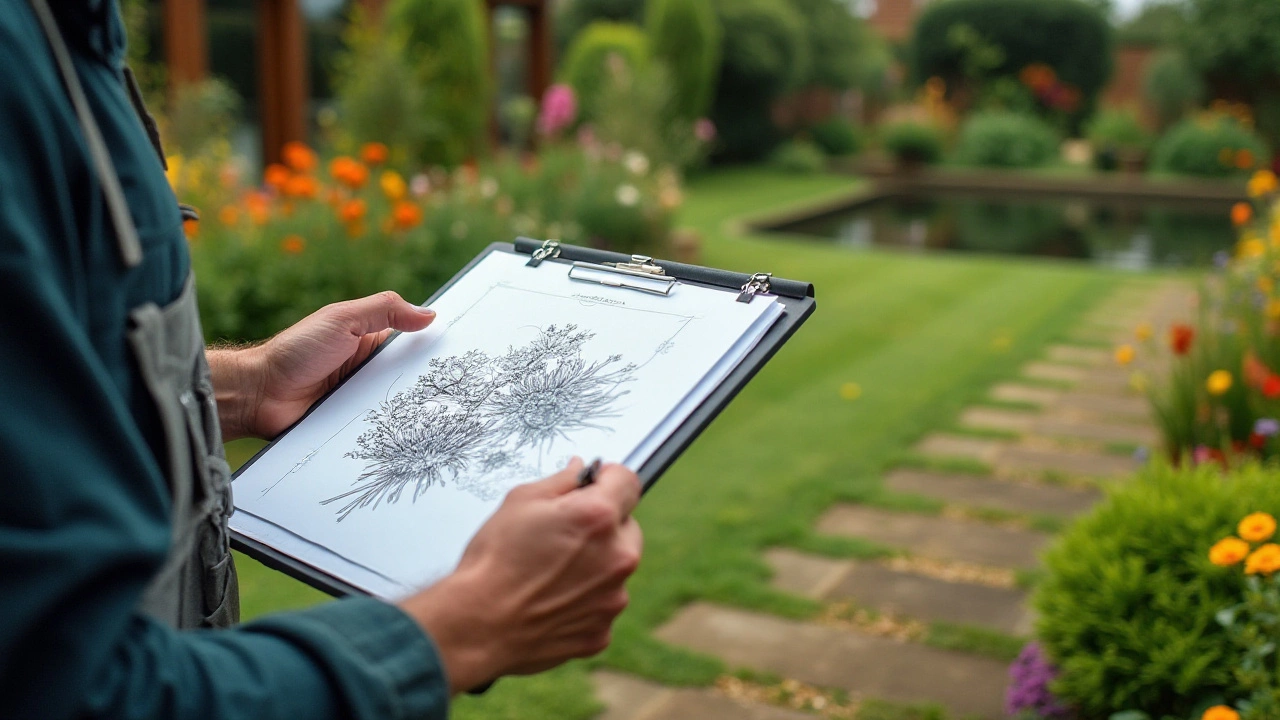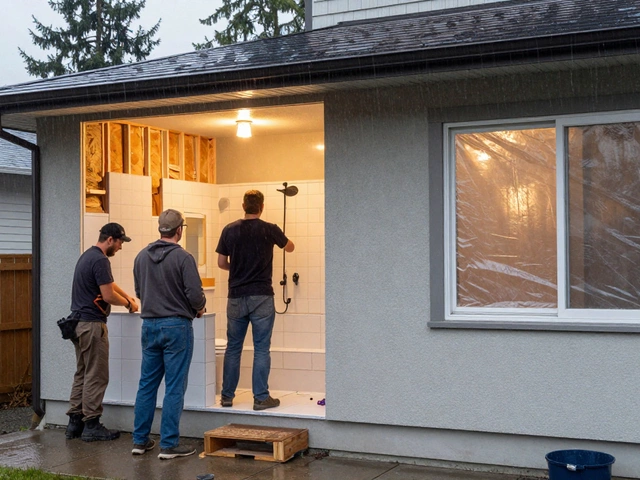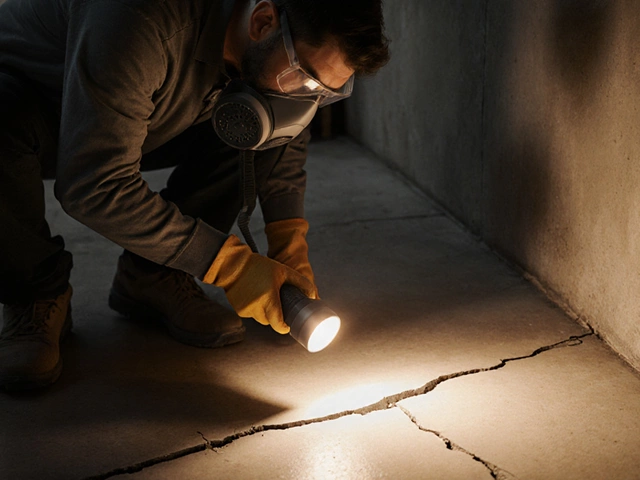When you think of landscaping, you might imagine lush green lawns and carefully trimmed hedges. But have you ever wondered what a landscaper truly does beyond that image? These professionals weave together science and creativity to transform outdoor spaces into stunning landscapes.
From meticulously charting landscaping designs to understanding the nuanced needs of various plants, a landscaper balances artistry with practicality. Their work isn't just about visual appeal; they enhance the functionality of spaces, contributing to both environmental health and property value.
Join us on this exploration into the world of landscaping services, where we uncover the skills, tools, and daily activities of those who bring outdoor visions to life. Whether you're looking to revamp your garden or simply curious about the craft, this journey offers valuable insights and tips.
- Daily Duties and Responsibilities
- Skills and Tools of the Trade
- The Impact of Landscaping on Property Value
- Tips for Hiring the Right Landscaper
Daily Duties and Responsibilities
When considering the role of a landscaper, envision a day filled with a rich blend of tasks that revolve around both nature and creativity. A landscaper’s morning might begin with a review of the day's plans, which often involves poring over blueprints and scheduling tasks to maximize the impact of landscaping strategies. Essential duties are driven by the season, as they must adapt to the ebb and flow of weather changes, which determine when to plant, prune, or harvest.
Part of their morning may include site assessments, where they measure, map, and observe key environmental elements. This isn't just about aesthetics; it involves practical assessments related to soil health, irrigation needs, and the stability of existing plant life. These professionals aren't merely lawn mowers; they are stewards of land, intent on ensuring every element from soil to sunlight is optimized for the health of the green spaces they nurture.
As they move through their day, landscapers engage in diverse activities such as soil preparation, planting, trimming, and the installation of walkways or other decorative landscapes. Skills in designing and crafting outdoor garden maintenance solutions are crucial as they plan both the immediate and long-term care of plants and structures. Their responsibilities can sometimes include organic pest control methods, where knowledge of natural deterrents plays a key role in maintaining park or garden ecosystems without the use of harsh chemicals.
Perhaps one of the most fascinating aspects of their role is found in the diversity of projects they manage—from adjusting irrigation systems to collaborate on larger environmental management projects. A respectable source, the American Society of Landscape Architects, highlights, "At the heart of every landscape is a well-structured plan and endless collaboration." This emphasizes the collaborative nature and the complex orchestrations required in daily operations.
The afternoon might see them crafting elements like retaining walls, pathways, or even water features, which often involves working with stone, wood, and other materials to create atmospheres blending function and form. Handling the technical aspects of outdoor design, such as selecting suitable materials resistant to local climate challenges, falls within their purview too. Here, the role demands hands-on skill and an artistic touch, ensuring every aspect of their creation offers both beauty and resilience.
Landscapers close their day with maintenance checks, critically assessing the work completed and planning follow-up tasks to ensure future growth and sustainment of the landscapes they've nurtured. It’s a profession that demands not only physical stamina and technical skill but also patience and a relentless passion for nature's beauty—a combination that transforms simple yards into exquisite outdoor experiences.
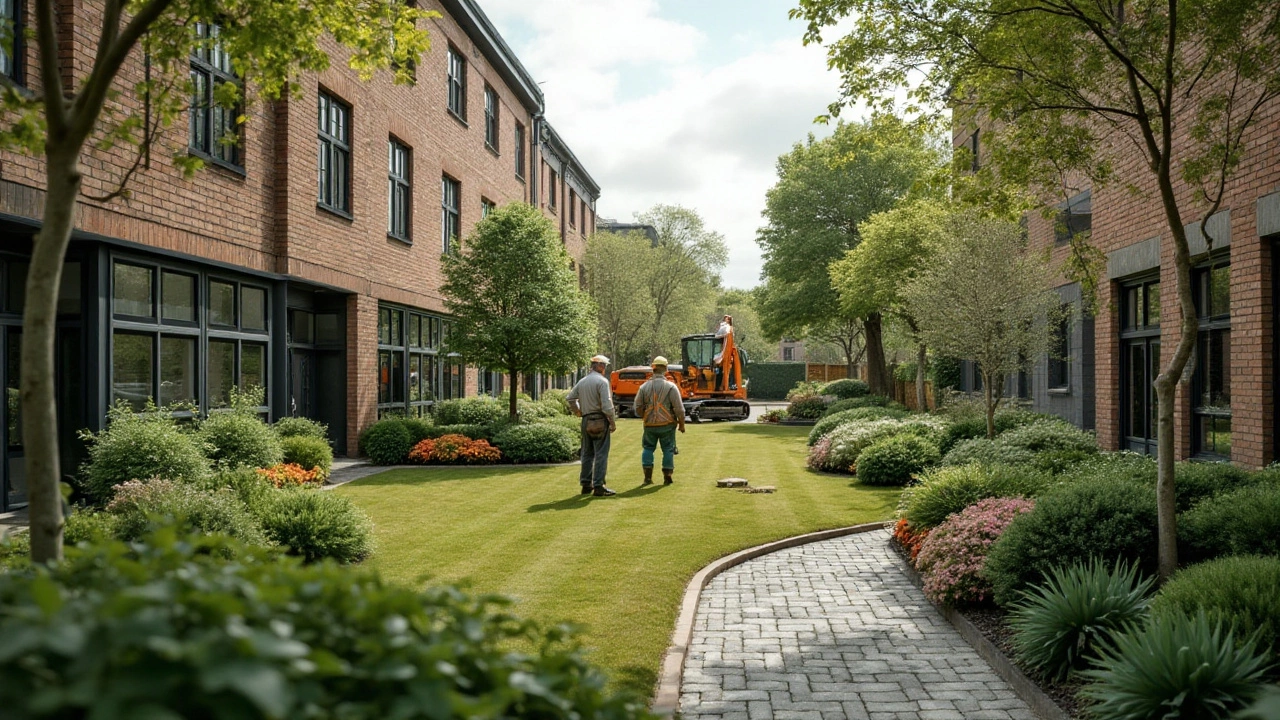
Skills and Tools of the Trade
Delving into the world of landscaping, one quickly realizes that being a successful landscaper demands a diverse set of skills and tools. It’s an area where art meets functionality, requiring a deep understanding of both nature and design. To start with, an effective landscaper must possess a robust knowledge of horticulture. This means understanding the various species of plants, how they grow, what conditions they thrive in, and the care they require. A landscaper needs to know which plants complement each other and how they interact with local weather patterns and soil conditions. This knowledge isn't just practical—it's essential for creating cohesive, vibrant outdoor environments.
But plant knowledge alone isn't enough. Landscapers are also visionaries; they need a keen eye for design, understanding how different elements can be arranged artfully to create a harmonious and attractive space. This involves skills in spatial planning and an understanding of basic design principles such as balance, unity, and rhythm. Many landscapers employ software tools like CAD (Computer-Aided Design) programs to visualize their designs before implementing them on the ground. These technologies allow for precise planning and can help clients better understand the proposed transformations of their landscapes.
In addition to these core skills, successful landscapers must be adept in project management and have strong problem-solving abilities. From estimating the cost and scope of projects to coordinating with suppliers and navigating weather challenges, their role involves a fair amount of logistical planning and coordination. Effective communication skills are equally pivotal. Landscapers often work closely with clients to ensure their visions are realized while also managing a team and potentially collaborating with other professionals, such as architects and builders. As quoted by renowned landscape architect John Brookes, "Gardens are about making people feel comfortable and engaging them with nature." These projects are as much about client engagement as they are about environmental transformation.
On the tools front, landscapers wield everything from simple hand tools like shovels and pruners to more complex machinery like lawn mowers, tillers, and tractors. Safety and efficiency in operating these tools are paramount. Modern landscapers may also use drones for aerial site inspections and sophisticated irrigation systems to ensure sustainable water use. Here's a quick glimpse of some essential tools a landscaper might use:
- Lawn Mowers: For maintaining healthy, even grass covering.
- Pruners and Shears: Essential for trimming plants, shrubs, and small trees to keep them well-shaped and growing correctly.
- Shovels and Trowels: Used across nearly every project for planting, dividing soil, and working with various materials.
- Wheelbarrows: Help in transporting materials like soil, stone, and plants across the site.
- Irrigation Systems: Crucial for maintaining water efficiency and health of the landscape.
In conclusion, the combination of a landscaper’s skills and tools not only enhances the beauty and utility of outdoor spaces but also contributes significantly to the environmental health of an area. This profession cleverly blends art, science, and hands-on skill, making it essential for those who wish to enhance or even redefine their properties through prudent use of landscape design.
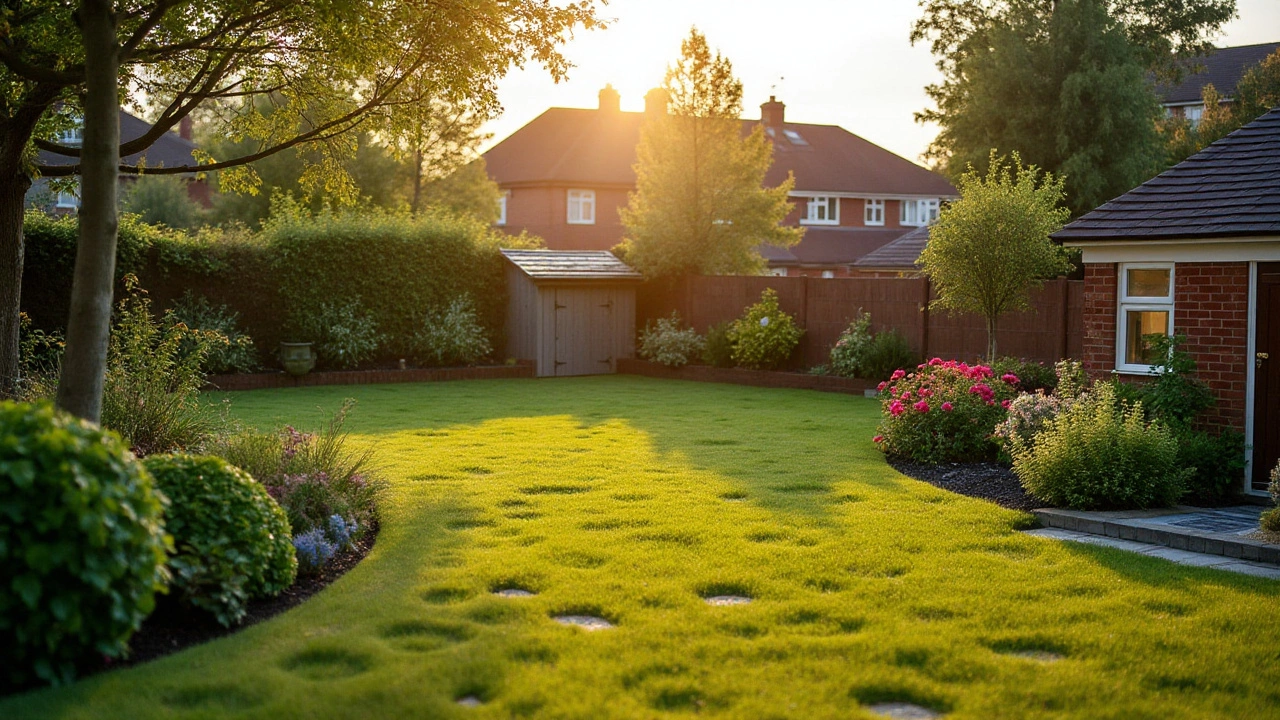
The Impact of Landscaping on Property Value
Landscaping doesn't just beautify your outdoor space; it holds a powerful influence on property value, often tipping the scales significantly in favor of the homeowner. A well-groomed landscape is akin to a polished resume for your home – it provides potential buyers or renters a glimpse into the care and attention the property receives. Beyond the aesthetic appeal, certain landscaping elements are directly linked to an increase in property value, offering a promising return on investment. An attractive landscape can boost a property's value by 10 to 12 percent according to the National Association of Realtors. This increase is no small feat, especially when compared to other types of home improvements.
The effects of quality landscaping on property value stem from various facets such as plant choices, hardscaping elements, and lawn maintenance. Properties that integrate features like well-designed patios, walkways, or strategically planted trees not only benefit aesthetically but also environmentally. Trees play a pivotal role; they not only add shade and privacy but significantly reduce cooling costs, inviting energy efficiency into the conversation. Research suggests that properties with large trees can sell for up to 15 percent more than those without. It’s also worth mentioning the effect of seasonal bloom and color variation, which keeps the landscape vibrant all year round, enhancing its appeal to potential buyers.
A meticulously landscaped property often solves two problems simultaneously: it increases curb appeal and enhances functional outdoor living spaces. Think of it as adding an extra 'room' to your home, where families can gather, play, or relax. This multifunctional aspect of landscaped spaces is invaluable, particularly in urban areas where indoor space might be limited. Prospective buyers often rely on their first impression when evaluating a property, and an inviting landscape sets a positive tone right from the get-go. According to a survey by the Society of Real Estate Appraisers, homes with excellent landscapes can recover over 100% of the landscaping costs upon selling.
Choice of plants and design plays a critical role in driving value. Native plants, which are adapted to the local climate and require minimal maintenance, are often seen as more desirable. They provide ecological benefits, like supporting local wildlife and reducing water usage. Landscaping services can recommend the right mix to maximize aesthetic and environmental benefits. Similarly, including elements like rock gardens, water features, and eco-friendly lighting can add unique touches that enhance the perceived value of the property. As a landscape design matures, its value grows, providing long-term benefits to homeowners who choose this transformative form of artistry.
Lastly, it is important to consider the correlation between landscaping and neighborhood coherence. A well-maintained landscape contributes to the uniformity and attractiveness of a community, encouraging neighbors to follow suit. This upliftment positively affects property valuation across the board, reflecting a collective boost shared by all homes in the area. Leveraging professional landscaper duties not only reflects personal style but can sway financial gain in the homeowner's favor when it comes time to sell the property. Clearly, the investment into well-considered landscaping yields returns beyond aesthetics, reaching deeply into financial avenues, environmental wellness, and community value enhancement.
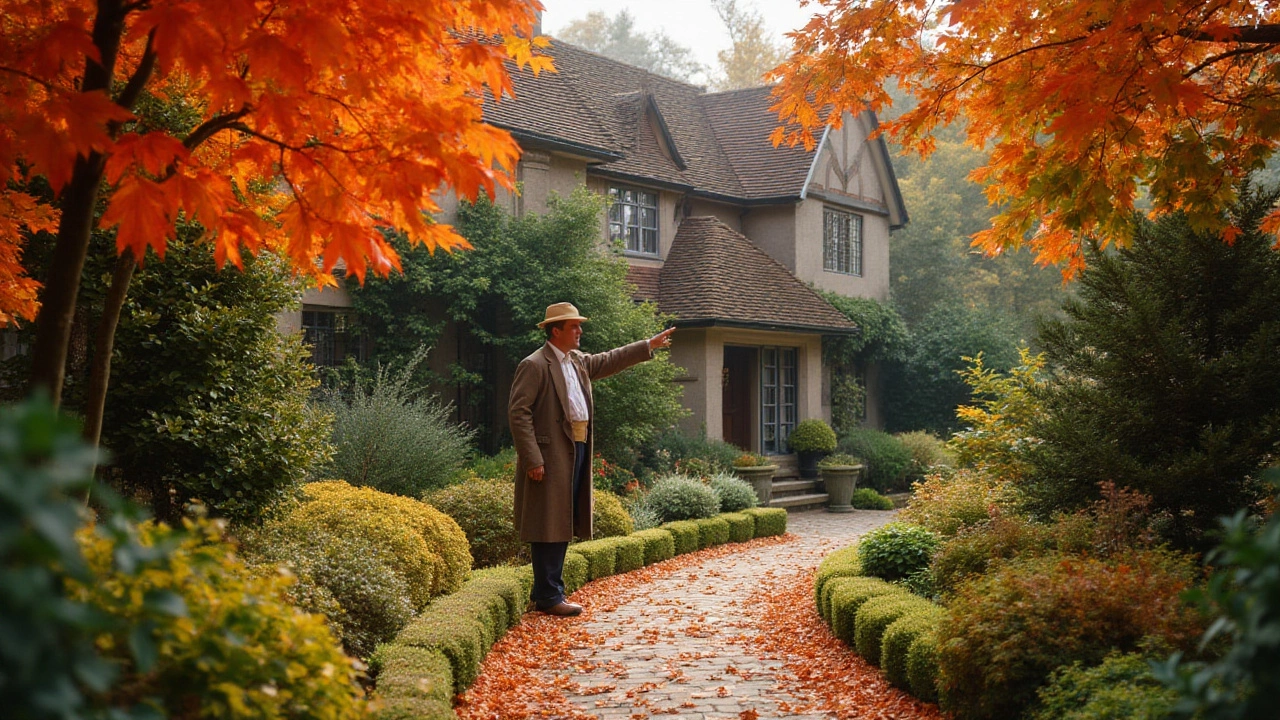
Tips for Hiring the Right Landscaper
Choosing a landscaper for your outdoor needs is much like selecting a partner for any significant project. It requires careful thought and the right questions to make sure you invite the right expert into your personal sanctuary. Whether you're looking to create an elaborate garden or simply need routine garden maintenance, these tips can help guide you through the myriad of options available.
First, it's essential to identify what you want from a landscaping service. Different landscapers specialize in various areas, from outdoor design to maintenance, and even intricate tasks like water features or hardscaping. By defining your project scope, you can refine your search to those who have the expertise that matches your vision. Once you have a shortlist, embark on a digital background check. Online reviews, testimonials, and checking their portfolios can provide insights into their work style and reliability.
Beyond digital intelligence, having a face-to-face meeting is valuable. Inquire about their approach to challenges such as drought-resistant plants, seasonal changes, or specific design needs. These discussions can reveal their knowledge depth and adaptability. As Steve Lentz, a renowned horticulturist, once said,
"A good landscaper doesn't just plant by the book; they plant for the soul of the place."This captures the essence of finding a professional who can read both nature and clients alike.
Don't hesitate to ask about their communication style. Regular updates and transparency in timelines are crucial to a project’s success. Inquire if they have project managers or will they be your solo point of contact. Understanding how they plan to meet deadlines will shed light on their organizational skills and reliability. Equally important is their knowledge of local regulations or any permits required for your landscaping endeavors. Top professionals will not only know the rules but have relationships with suppliers and the community to streamline processes.
Another critical aspect is verifying their credentials and insurance. Any reputable landscaper should be licensed and insured, which safeguards you against potential liabilities or accidents. Don't underestimate the importance of a formal contract, detailing all aspects of the project – from timelines to specific tasks and materials. This document serves as a legal safeguard and keeps expectations clear on both sides.
Invest some time to check their portfolio against similar properties to yours. If your home sits on a slope or has unusual soil conditions, only those who have navigated similar terrains should make the cut. Ask about their preferred equipment and why – it can provide a glimpse into their approach towards innovative versus traditional methods. For instance, embracing eco-friendly practices should be a consideration if sustainability is key to you.
Finally, there’s no better assurance than discussing budget openly. Ensure that quotes are detailed and explain any significant cost drivers. Understanding the pricing structure will prevent surprises and allows room for adjustments tailored to your financial comfort. A good landscaper respects your budget while offering suggestions on where your funds could be better employed to maximize impacts, which points towards their expertise and customer-centered focus.
